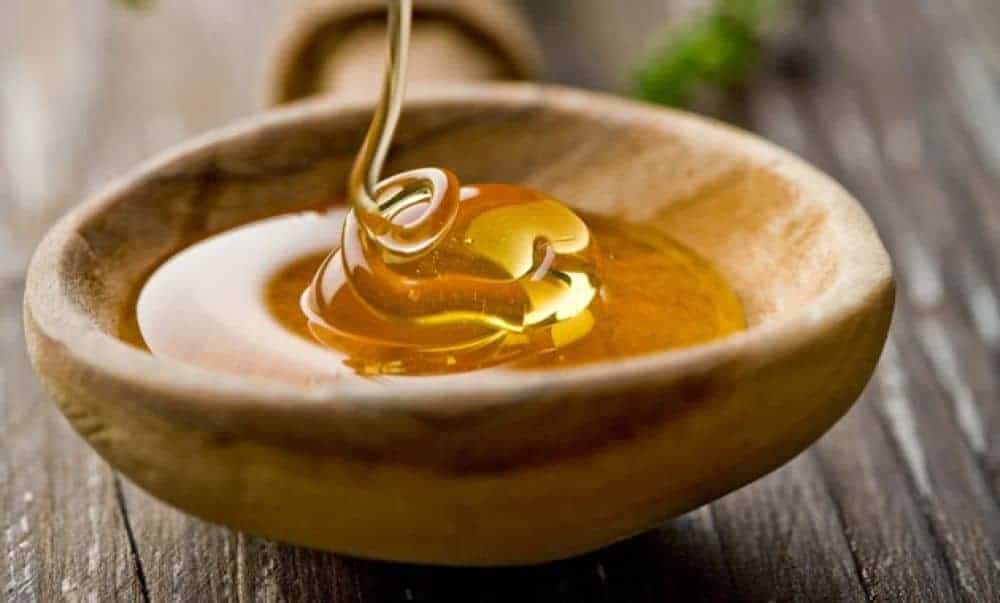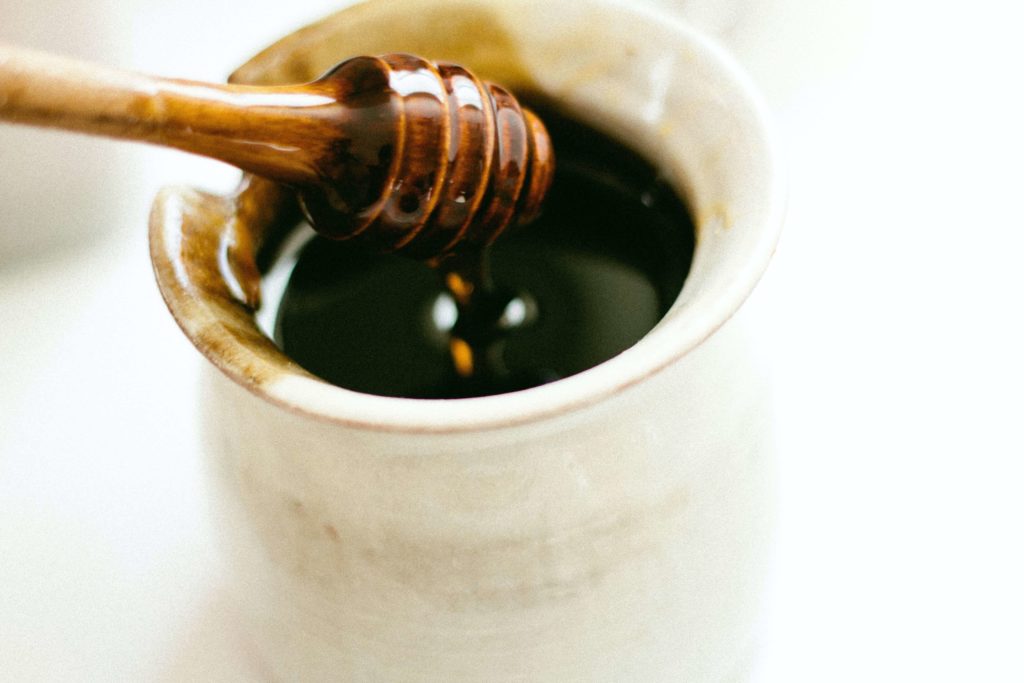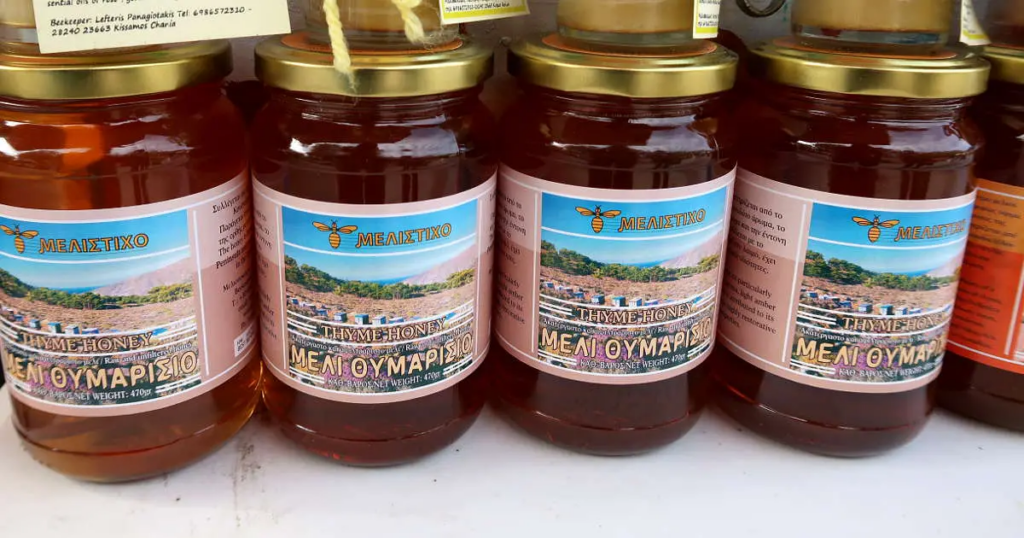START BOOKING YOUR TRIP TO Greece
** Please note that we get a small commission if you book via our referral links. We use this to invest in new foodie content and to update the Greece Foodies website.
“Honey honey”: Greek Honey In gastronomy
Since prehistoric times people knew how to make honey and use it in their diet. According to scientists, bees appeared on our planet 65 million years ago. Up until the 15th Century, honey was the only sweetener in the then known world. Τhe history of honey in Greek gastronomy might be richer than we believe, join us as we begin a new journey exploring what honey really means to Greeks!
Read more: Greek Christmas Food: The Ultimate Guide
What’s so special about Greek honey?

Greek honey has an unusually high diversity of species and favorable temperates. The vast array of trees and plants in Greece makes the region ideal for bees, which make honey depending on their surrounding environment.
Greek honey has more aromatics than most European honey. The honey is less humid, and it is more dense.
Honey in Ancient Greece
The relationship between Greeks and bees began in the distant past of the mythical era. The gods of Olympus used to consume nectar and ambrosia. In ancient Athens, beekeeping and the production of honey were highly organized. In fact, Solon (640-558 BC), one of the first legislators, defined by law the distances that should exist between beekeepers. This was the only way they could avoid misunderstandings about ownership of flocks.
In fact, Aristotle’s writings on animal stories reveal to a great extent the importance of honey. Bee society can be a model for an ideal state’s design, structure, and hierarchy, with the great Greek philosopher proceeding to make a glass flock to find out how the bees work and live.
The history of honey in Greek gastronomy is evident through the Iliad, Odyssey, and other great works of ancient Greeks. Several ancient gastronomical treats with honey emerge. From the “mitotos,” a pie with cheese, oil, honey, and garlic, to “melikraton”, a milk and honey alloy, and the very well-known “loukoumades”, pancakes fried in oil and covered with honey. This sweet golden liquid was one of the basic ingredients of nutrition for the ancient Greeks.
Anciently the best producer of the best varieties of thymes honey was Athens. Bee-hives of about 60 BC were found at the city’s center.

Is there a goddess of honey in Ancient Greece?
In Ancient Greek mythology, while there isn’t a specific goddess exclusively devoted to honey, there are deities closely associated with this delectable golden substance. One of these deities is Demeter, the goddess of agriculture and fertility. Demeter’s connection to the earth’s abundance includes the production of honey, as she is believed to have blessed the land with nectar-rich flowers, which bees gather to create this sweet delicacy. The significance of honey in the context of Demeter’s realm showcases its importance as a symbol of fertility and the harmonious relationship between humans and nature.
Artemis, the goddess of the hunt and wilderness, is another deity linked to honey in Ancient Greek mythology. Bees held a sacred status in Artemis’ domain, and she was often depicted surrounded by or accompanied by bees. As a protector of wildlife and the natural world, Artemis represented the untamed beauty of nature. Bees, acting as her messengers, collected nectar from wildflowers, highlighting the connection between the wild and the domesticated. Honey, in this context, symbolized the divine gift derived from the harmony between humans and the natural environment, encapsulating the reverence for nature in Ancient Greek culture.
Is Honey famous in Greece today?
Honey is considered a significant food product worldwide and has always been favored in various cultures from ancient times, including the Greeks among them, among others. In human life, honey transcends pure sweetness – an essential element.
Greece is today the 7th country with more honey production every year in the European Union. It features several honey products with protected designation of origin by the EU, such as “Pefkothymaromelo Kritis,” a particular blend of thyme and pine honey produced in Crete. Crete boasts the highest density of bees in the world.
In Greece, there is an annual production of 12,000 tons. Forest honey is made mostly from pine, oak honey, or pine saplings.
After our journey through the history of honey in Greek gastronomy, follow us as we stroll through Greece’s hidden cookbooks and discover delicious honey recipes! And if you haven’t tried our most recent recipe yet, what are you waiting for?
Honey in Greek Cuisine

Greek Honey is a staple ingredient in Greek cuisine. It is used to sweeten food in Greece, as well as to add flavor and texture. Honey is also used in some traditional medicines. There are many different types of honey, each with its own unique flavor. The most common type of honey in Greece is thyme honey, which has a strong flavor and is often used in pastry recipes. Other popular types of honey include orange blossom honey and lavender honey. Greeks typically use honey that is produced locally, as it is believed to be the most potent and flavorful. Honey is a versatile ingredient that can be used in sweet or savory dishes. It is an essential part of the Greek culinary tradition.
Honey in Greek Breakfast
Greek honey is a delightful addition to a Greek breakfast. Renowned for its rich flavor and natural sweetness, Greek honey is a true delicacy. Whether drizzled over thick Greek yogurt, spread on freshly baked bread, or added to warm tea, it elevates any breakfast experience. The unique floral notes and golden color of Greek honey come from the diverse flora that thrives in the country’s rich soil and mild climate. Beyond its delicious taste, Greek honey is also celebrated for its numerous health benefits, such as antioxidant properties and potential antibacterial effects. A spoonful of Greek honey in the morning not only satisfies the palate but also nourishes the body, making it a cherished component of a wholesome Greek breakfast.
- Nafplio Beekeeping Workshop: Learn all about beekeeping and honey production at the Nafplio Beekeeping Workshop in Greece. This unique experience is perfect for the whole family!
- Naxos Farm Visit: Learn about cheese making, discover the world of bees, enjoy local products and more. Book your spot today at Naxos farm visit and cheese workshop
- Rhodes Food Experience: On this food tour, you’ll get to try some of the best that the island has to offer, from greek honey to an amazing lunch. So book your seat now to Rhodes food experience
Popular Varieties of Floral Greek Honey

Flora Greek honey is produced from flower nectar collected from bees. It can be monofloral (from a single kind of flower), poly floral (also wildflower honey from several flowers), or mixed (mixing from multiple honey varieties). Greek Thyme Honey. Due to its taste and antiseptic properties, Thyme Honey, a highly precious variety, accounts for approximately 10% of the total Greek honey. Greek thyme honey combines spice with a strong flavor. Its colors generally are light gold but may be distinctly darker compared to regions. It has a chemical substance like Bore and minerals like copper and iron—Greece Citrus honey.
Why is honey from Greece so good?
Greek honey has unique characteristics thanks to its famed wildlife and temperate climate. Greece’s extensive variety of tree and flower species makes the island a playground of bee species producing honey which differs in taste depending on the environment of its production process.
Which honey is best from Greece?
The honey thyme is most revered in Greece because the bee-fed bee produces less honey, thus becoming scarcer. Thyme honey has a dark color – with a solid herbal smell – it usually crystallizes between 6 and 18 months, depending on stored temperature.
What Does Thyme Honey Taste Like?
Thyme honey from Crete has a light color and an incredibly floral aroma. Those wildflowers that adorn mountain slopes are infused with layers of flavor. We had several jars of thyme honey while visiting Crete which had varying taste and texture. Among the lighter colors was a lighter tone with softer notes and a darker amber color characterized by stronger flavors. No matter the differences, we found the whole thing fragrant and fresh, with an interesting and lingering smell. It may also cause slight variations in taste in honey compared with other wildflowers. In Greece, thyme honey can only use 18 % thyme to be called thyme honey.
How To Choose Your Thyme Honey from Greece
Honey is fraudulent. Greeks say you can make fake honey by mixing honey, soybean syrup, and colored ingredients. In some parts of the globe, fake honey is the third most-fake food compared to dairy and olive oil. How to make sure you get the real thing?
Grab a spoon or honey spoon when you open your container. Let it cool down slowly. When it doesn’t crack, it’s original fresh honey. Also, look for honey in glass bottles when preparing honey for use with honey.
Does Greece have the best honey?
From ages old to the present, Greeks have created the best honey ever. Scientists have shown Greek honey is high in compounds like mono phenolic acids.
Although its popularity has recently increased internationally, Greek honey is still considered among the finest honey of all time despite its ancient history. It combines pure sweetness and nutritional benefits.
Armed with a steaming cup of coffee and an infectious love for teamwork, I brew up brilliant product designs and digital marketing strategies that will leave you buzzing with excitement.















